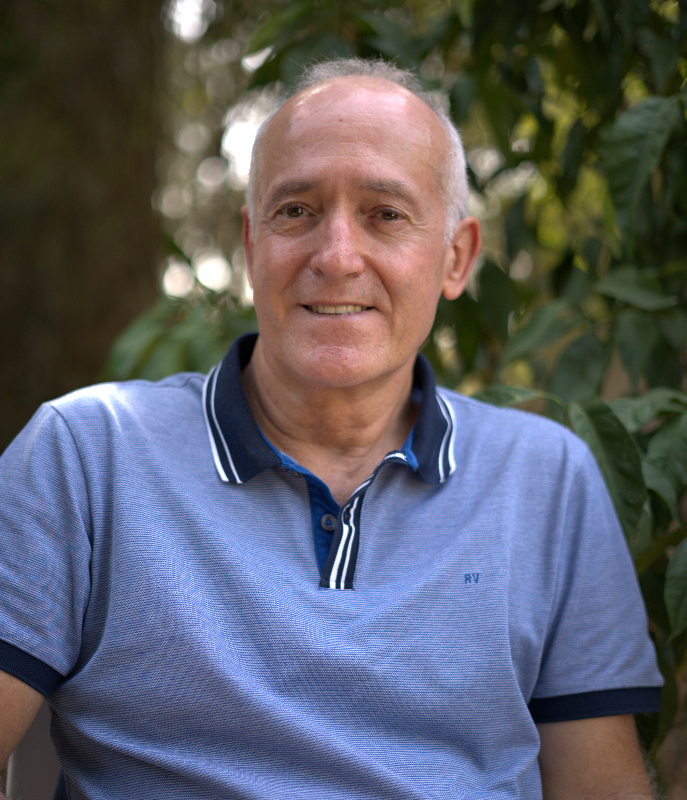Sceptic about digital agriculture? Watch this!
José Enrique Fernández
Irrigation and Crop Ecophysiology group.
Institute for Natural Resources and Agrobiology (IRNAS, CSIC), Spain
ABSTRACT
Digital agriculture is regarded as one of the most effective approaches to face current challenges in agriculture. Its potential success is based on the capacity of measuring what is going on in the field, and on identifying the natural variability within the farm or the orchard, such that precision agricultural techniques can be applied. In my research group, we work on sensoring, modelling and data processing approaches related to the management of water in agriculture. More precisely, we develop deficit irrigation strategies and methods to schedule irrigation from soil, plant and meteorological measurements. Most of our work is related to the use of plant-based variables and related systems to assess water stress, suitable for automatic and continuous monitoring under field conditions. This includes sap flow, trunk diameter variations and leaf turgor measurements. We evaluate the suitability of each variable to schedule irrigation through the identification of effective water stress indicators from the collected data, as well as from the development of applications to automatically process the data, some based on machine learning methods. In combination with remote imagery, our approaches allow for precision irrigation. We work in a context of Sustainable Intensive Agriculture, in which we try to ensure food safety and to achieve an optimum use of water at the same time that a fair profit to the grower is pursued. This includes an economic analysis of the derived approaches. Here I will give an overview of the work we do in my group and in combination with other groups, to illustrate the challenges and potential of digital agriculture for optimising irrigation.
SPEAKER BIOGRAPHY
José Enrique Fernández is a Research Professor at the Institute for Natural Resources and Agrobiology of Seville (IRNAS) a research institute belonging to the Spanish National Research Council (CSIC).
Dr Fernández is the head of the research group on Irrigation and Crop Ecophysiology (https://www.irnas.csic.es/rec/). He is specialised in plant water relationships of crops typical of arid and semi-arid areas. Along his career he has focussed on the design of irrigation strategies for deficit irrigation, and in methods to schedule precision irrigation from plant-based measurements, suitable for digital agriculture. He has worked with a variety of herbaceous and woody crops, mainly olive.
In the last years he is interested in methods to optimise the agricultural use of water in a context Sustainable Intensive Agriculture, where food security is ensured at the same time that natural resources are preserved, biodiversity and landscaping are improved, a fair profit to the producers is guaranteed and the socio-economic conditions of rural environment are enhanced.
Since 2014 he is the director of the IRNAS. From April 2015 to June 2018 he was Coordinator of Agriculture for the Spanish Agency of Evaluation and Prospective (ANEP). Since 2013 he is Editor in Chief of the scientific journal Agricultural Water Management.














